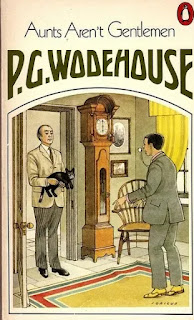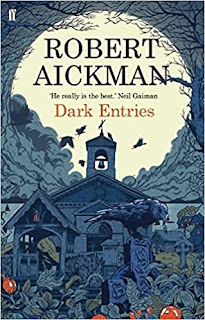Embed from Getty ImagesWith Joan of Arc is in the news today I thought I would take a look at how Charles Dickens treated her in his A Child's History of England.
It should not surprise me, but I am pleased to find that he is wonderfully compassionate, has more insight into mental health than some modern professionals and is not jingoist in the slightest:
It was natural in one so young to hold to life. To save her life, she signed a declaration prepared for her - signed it with a cross, for she couldn’t write - that all her visions and Voices had come from the Devil. Upon her recanting the past, and protesting that she would never wear a man’s dress in future, she was condemned to imprisonment for life, ‘on the bread of sorrow and the water of affliction.’
But, on the bread of sorrow and the water of affliction, the visions and the Voices soon returned. It was quite natural that they should do so, for that kind of disease is much aggravated by fasting, loneliness, and anxiety of mind. It was not only got out of Joan that she considered herself inspired again, but, she was taken in a man’s dress, which had been left - to entrap her - in her prison, and which she put on, in her solitude; perhaps, in remembrance of her past glories, perhaps, because the imaginary Voices told her.
For this relapse into the sorcery and heresy and anything else you like, she was sentenced to be burnt to death. And, in the market-place of Rouen, in the hideous dress which the monks had invented for such spectacles; with priests and bishops sitting in a gallery looking on, though some had the Christian grace to go away, unable to endure the infamous scene; this shrieking girl - last seen amidst the smoke and fire, holding a crucifix between her hands; last heard, calling upon Christ - was burnt to ashes. They threw her ashes into the river Seine; but they will rise against her murderers on the last day.
From the moment of her capture, neither the French King nor one single man in all his court raised a finger to save her. It is no defence of them that they may have never really believed in her, or that they may have won her victories by their skill and bravery. The more they pretended to believe in her, the more they had caused her to believe in herself; and she had ever been true to them, ever brave, ever nobly devoted. But, it is no wonder, that they, who were in all things false to themselves, false to one another, false to their country, false to Heaven, false to Earth, should be monsters of ingratitude and treachery to a helpless peasant girl.
In the picturesque old town of Rouen, where weeds and grass grow high on the cathedral towers, and the venerable Norman streets are still warm in the blessed sunlight though the monkish fires that once gleamed horribly upon them have long grown cold, there is a statue of Joan of Arc, in the scene of her last agony, the square to which she has given its present name. I know some statues of modern times - even in the World’s metropolis, I think - which commemorate less constancy, less earnestness, smaller claims upon the world’s attention, and much greater impostors.
To think that for much of the 20th century the most celebrated critics told us we should not bother with Dickens!
I was led to writing this post when I saw a letter in the London Review of Books taking a contributor to task for calling Henry VIII "Victorian England's hero". The writer of the letter pointed out that Dickens had called Henry
a most intolerable ruffian, a disgrace to human nature and a blot of blood and grease upon the History of England.
Dickens had a more penetrating intellect than most of his contemporaries, but it's fair to say that the Victorians were far less Victorian than we moderns think.
We'll have to find someone else to blame for our unhealthy obsession with Henry,




















